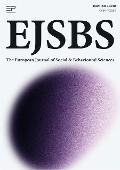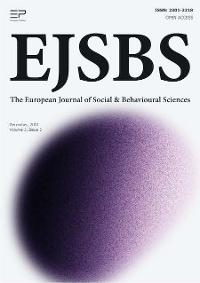Abstract
Stress experienced nowadays every person including children, youth and also gifted students. School environment is typical for stressful situations trough testing and marking, social environment in school and outside school. To stressful situation can get each individual and everyone sees the same stressful situation otherwise which affects an individual´s school performance and motivation- positively or negatively. From the research study (realized in 2011 in Brno, Czech Republic) shows that intellectually gifted youth need support and motivation from teachers and parents. Adolescence is critical period of life in which an individual may cease to be interested (for any reason) in an activity in which they excelled. It is known that work with intellectually gifted adolescent sis complicated because of giftedness and specific period of life (adolescence). The research study from 2011-2012 demonstrates which factors influence school motivation including stressors, social environment in school and outside school, personal characteristics. Stress can influence school performance and also development of giftedness. Therefore it is very important to engage in gifted adolescents because gifted have special needs in school as well as students with learning difficulties. Gifted people are our future.
Keywords: Motivation, gifted adoledcents, stressors
Introduction
In recent years the problems relating to the intellectually gifted in the school environment have been attracting more and more attention. Apart from psychologists it is mainly teachers who are seriously interested in the subject and try to effectively introduce the findings made by psychology to educational practice. These days the practice of identification of intellectual ability by means of IQ tests only is gradually abandoned, while attention is also given to creativity and motivation as part of the giftedness. As motivation, creativity and social factors play an important part in the ability development, it is of great use to devote attention to the gifted students during adolescence as one of the most critical and complicated periods in personal development. In this context a question arises concerning the problems of occurrence of school-related stress and coping with it in respect of intellectually gifted adolescents, and their impact on ability development.
Problem Statement
Sternberg classifies intellectual giftedness into analytical, synthetic and practical abilities (Sternberg, 2001). The analytical giftedness includes the ability to reach a high score in IQ tests and it is known that children with this ability do well at school (they are successful in terms of school performance). The synthetic giftedness includes creative abilities, abilities to cope with new situations in a creative, original way. This type of giftedness is less easy to identify than the analytical. Another type is the practical giftedness which is marked by the ability to apply analytical knowledge in practical situations and everyday life. One of the most widely known concepts of giftedness is the one created by Mönks. His triadic model also includes besides above average abilities whose intersection produces giftedness, the factors affecting giftedness. Renzullis concept of giftedness includes also other social factors (family, teachers, friends… etc.) “In real life we often observe that some individuals, though highly analytically and synthetically gifted, cannot put their advantages to good use when faced with real life problems” (Hříbková, 2009, p. 62).
Giftedness is not only an advantage, but also a disadvantage. Gifted individuals will often have increased demands placed on them, and at the same time tend to be very critical of themselves. If, moreover, gifted adolescents are involved, situations may become even more problematic. Here two intermingled factors are in play that may cause an individual a lot of difficulties on his/her way through life. Considering that adolescence is one of the most difficult periods in the human life, and the time of turning points and radical changes, the mentioned age group needs to be given appropriate attention.
At present mainly the gifted children of pre-school and young school ages are still at the centre of attention. Regardless of levels of abilities and giftedness the whole period of adolescence is characterized by substantial changes in the somatic, psychological, social and emotional areas (Macek, 2006). In this period of life performance of an individual starts to be related to their success in future life, choice of profession and general prospects in life. Individuals’ views gain in greater integrity, process of identification of realistic goals takes place, purposefulness and motivation with longer-term prospects increase. An individual’s healthy development in this difficult period is substantially influenced by social environment. Further development not limited to just the intellectual abilities during adolescence is essentially influenced by three factors (Portešová, 2009). These involve the general attitudes of the whole society to this development phase, attitudes and particularly biased approaches to adolescence, and further social stereotypes of giftedness and gifted individuals that play a role in individual interactions of a person and their social environment, and a developmental history of each individual. An individual enters this period with specific experiences, instances of success, fears… already influenced by what they went through. The influence of friends and social relationships gains in importance. Considering gifted adolescents this is a critical period of their life as far as the development of giftedness and functional social integration in future are concerned (Portešová, 2009). In terms of time adolescence fills mainly the second decade of life (Macek, 1999, p. 11). During the period of adolescence, the value hierarchy becomes clarified and one’s relation to the world and life stabilized (Macek, 1999). Adolescent people start to realize what is important for them, what are their priorities and sort out their interests, which is significantly influenced by social environment. During adolescence advanced thinking of an individual at an abstract level begins to shape.
From the perspective of development some tasks are continuous, they begin already in childhood and the period of adolescence should complete them (e.g. development of abstract thinking). Others, on the other hand, are specific of adolescence (e.g. change in the relation to adults). (Macek, 1999, p. 22)
Intellectual competences alone are confirmed at the beginning of adolescence by acceptance to an educational institution which also represents a future professional role, i.e. its social status. Toward the end of adolescence one’s abilities can be proved by graduating from the school. (Vágnerová, 2000, p. 260).
Characteristic of adolescents is fluctuations of self-confidence and excessive self-criticism that influence an individual’s performance and very difficult motivation for performance and basically for any activity, which creates hindrances in work with adolescents. The period of adolescence may pose a great danger for further development of the gifted, as a young person may for whatever reason lose interest in an activity in which they were successful, talented for, until then (Dočkal, 2005), which may mark the end of a promising talent development in a specific area.
The above mentioned changes and increasing scholastic demands on pupils create strain situations for an individual that he has to cope with in the best possible way. School-related stress is generally a natural part of the school environment, experienced by almost all pupils. Stress develops through acting of stressors that may have a long-term or short-term character. In this case stressors involved relate directly to the school environment, and include exams, tests, oral exams, big loads of schoolwork, lack of time for preparation, high demands by teachers, a teacher’s personality and relation to him/her, class collective, an individual’s personality, making demands on oneself, parent demands…etc., or they rather act indirectly such as disharmonious environment (divorce, arguments in the family), antisocial environment, social under privilegedness, financial situation in the family, a family social status, disease, death of a close person…etc.
Considering that individuals in this period between 12 to 15 years of age leave the elementary school and enter the grammar school, such essential change may cause fluctuation in an individual’s performance and result in diminished interest in school, weakened motivation, change in interests or stress relating to the new situation they have gotten into.
Research Questions
There have not been many researches undertaken in the area of school-related stress with regard to intellectually gifted adolescents.
I based the presented research study on the intermingling theoretical concepts of giftedness, adolescence, stress in school and motivation. It´s very important to motivate intellectually gifted students to achieve and to activity, in which they excel.
Purpose of the Study
The research study has undertaken to find out whether intellectually gifted adolescents also experience school-related stress, how they cope with possible stress and what the most frequent stressors are. The most important was, what and who motivate them to achieve and how motivation can influence school performance. Further I tried to find out which subjects were the most stressing for them, whether they thought their performance was influenced by stress and how they responded to a stress situation.
Research Methods
The research study has undertaken to find out whether intellectually gifted adolescents also experience school-related stress, how they cope with possible stress and what the most frequent stressors are. The most important was, what and who motivate them to achieve and how motivation can influence school performance. Further I tried to find out which subjects were the most stressing for them, whether they thought their performance was influenced by stress and how they responded to a stress situation.
Findings
For the purpose of research on the intellectually gifted adolescents I have chosen two prestigious (selective) Brno grammar schools, where I conducted a questionnaire-based examination and subsequently a group conversation in first forms of the eight-year study programmes (age 11) and four-year study programmes (age 15). Within the questionnaire examination, group conversation and presentation of the results to students, there were two meetings held for the purpose of gaining the above mentioned information.
Conclusion
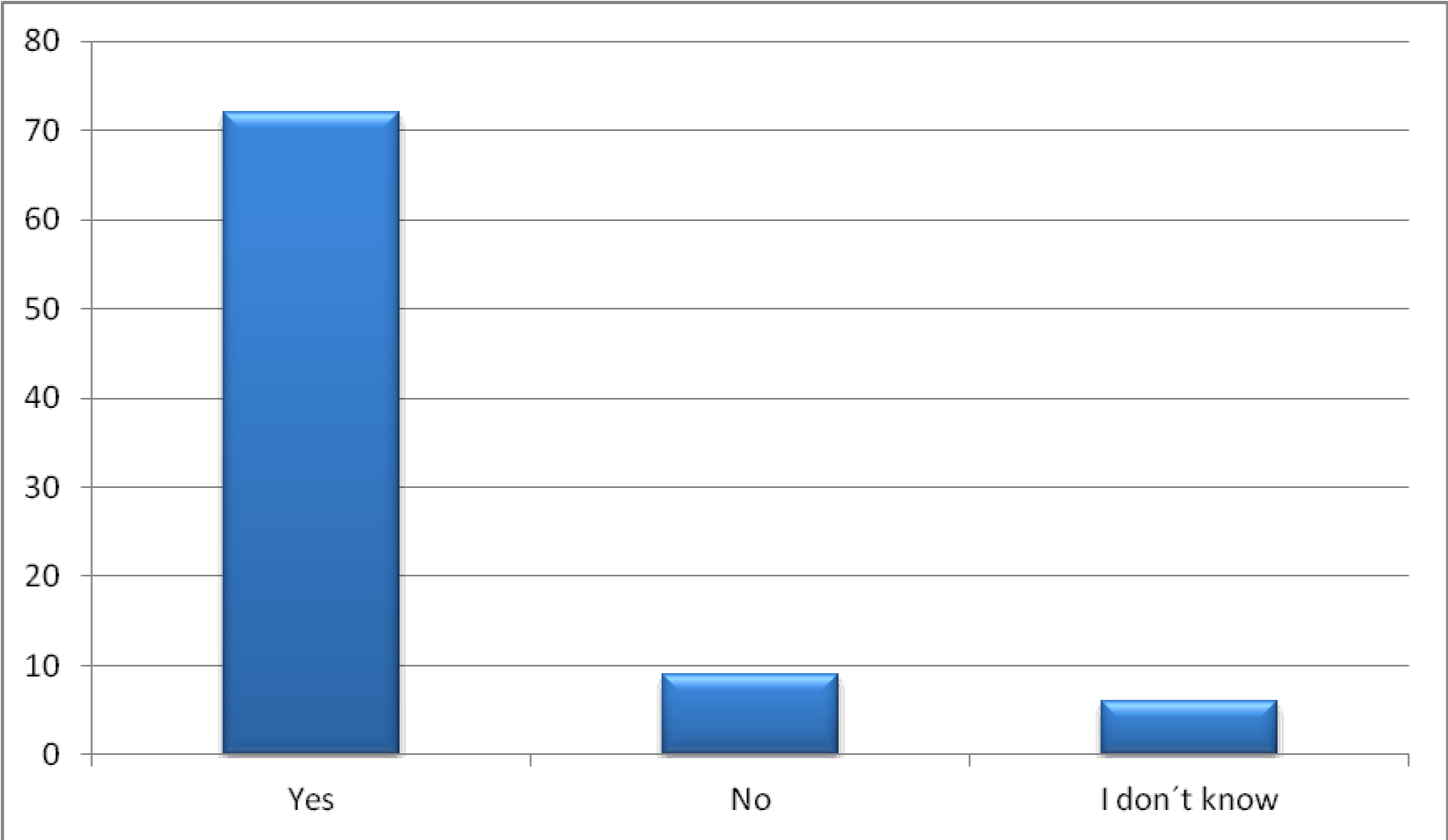
This question was very simple for answer…71 students answerd yes, 9 no and 7 I don´t know. It´s very interesting, that more students are nerveus by writing. Oral examination is not so stressful because there play a role personal factor (See Figure 1).
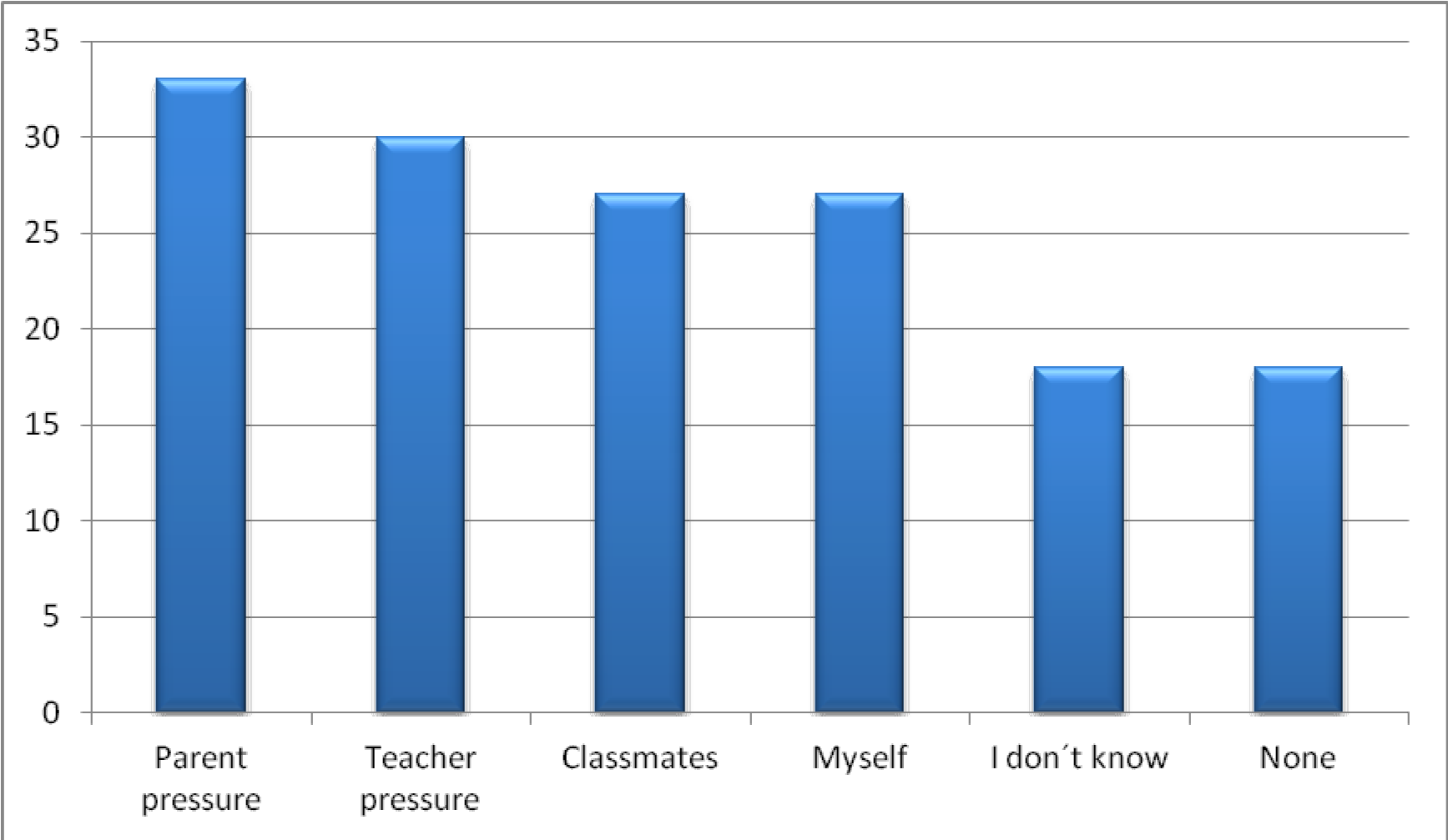
Here you can see what stressors are most frequent for intellectually gifted adolescents. At the first place are parents, than teachers, classmates. What´s very interesting is Myself. It´s mean my own mistake. In the second graph are describe other stressors as tests, oral examination, marking (1,2,3…or A, B, C…), subject matter (Math, Physic…) (See Figure 2).
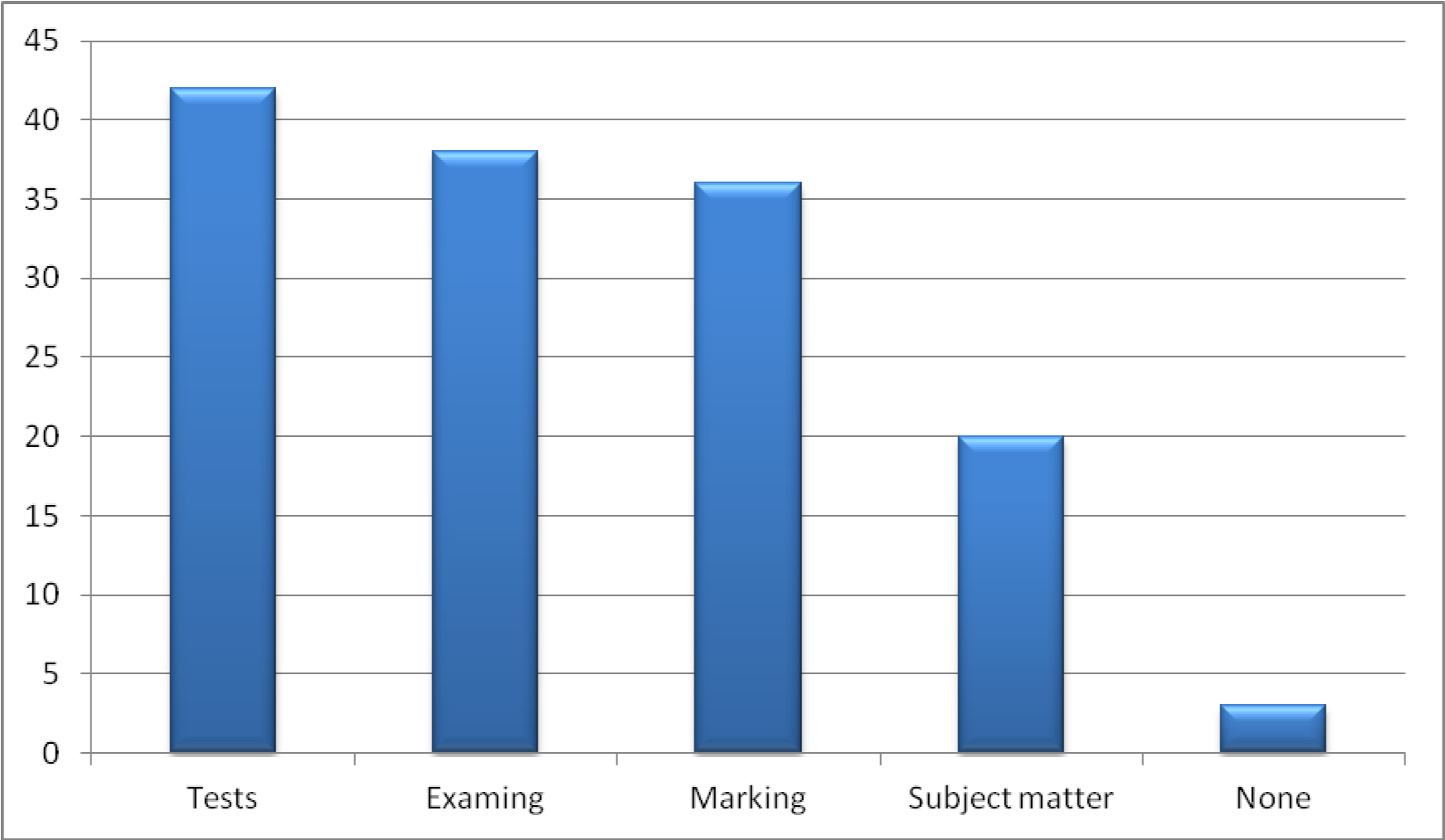
And the most important question for me was: What motivate you to achieve. Students answered teacher, parents, myself, classmates, friends, my future...
What was very important and may also interesting that stressors are also motivations factors. Many students see stressors as motivation point. For 83% students play motivation important role in school.
In 29% is teacher, in 35% parents, in 43% myself, in 18% classmates and 28% other factors motivate intellectually gifted students to achieve (Figure 3 and 4).
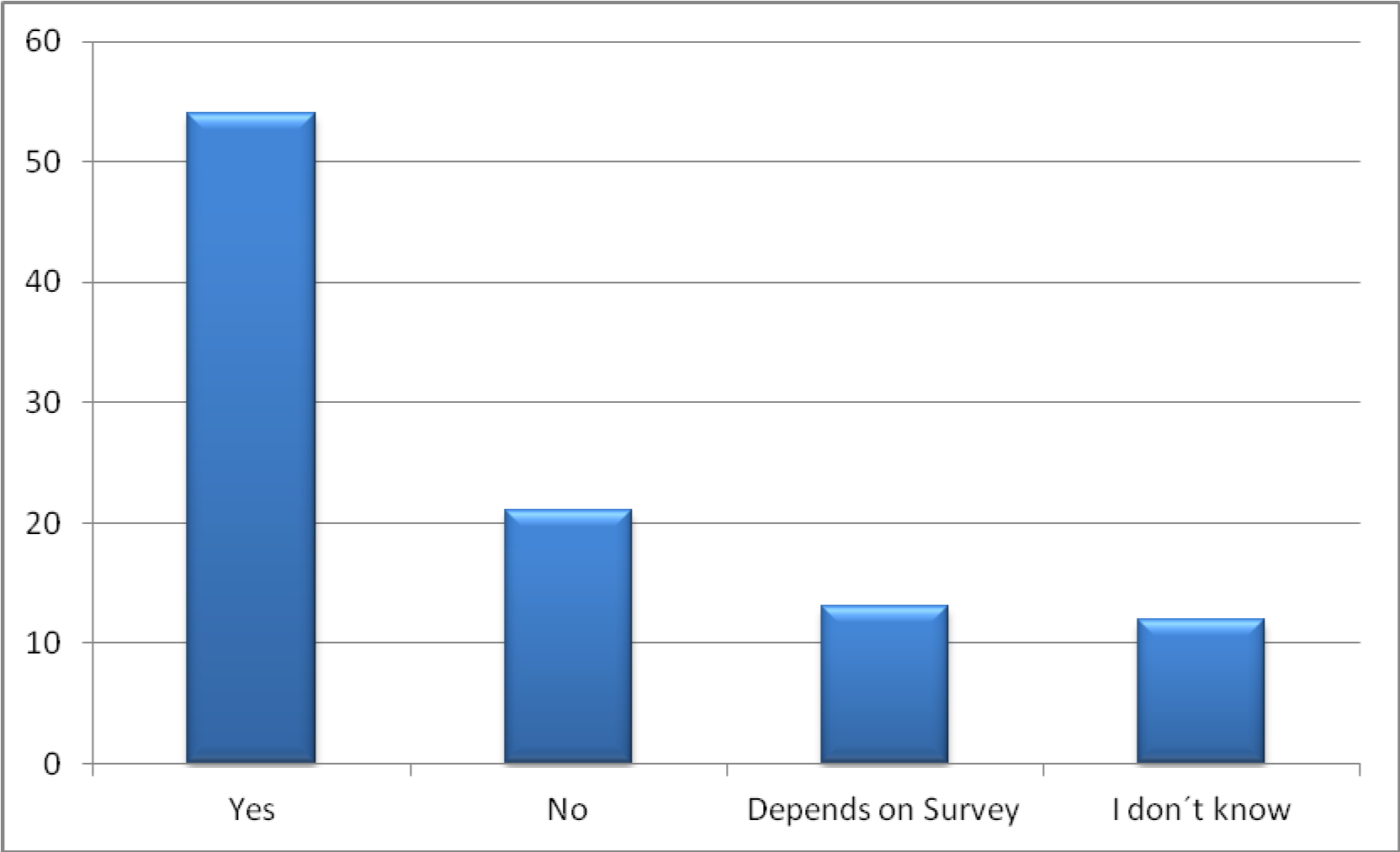
Conclusions
The research study was a part of my PhD. Study and of great value as a pilot study for further exploration of the problems in the area concerned and can be used as the necessary basis for further examination of intellectually gifted adolescents in relation to school related stress.
In view of the fact that intellectually gifted students, too, perceive stress at school initiated by specific stressors, the coping with school stress and school stressor influence on the development of intellectual giftedness during adolescence requires continued attention and possible intervention should be considered and proposed.
Owing to work with gifted students, and in addition in the period of their adolescence, not being easy at all, it should be noted that the teacher’s individual approach to each pupil, their ability to motivate students for achievement, arouse their interest in a given subject and present content in a way engaging the relevant age group, being principled, fair and firm, while at the same time understanding, tolerant and responsive, plays the key role with regard to motivation, interest in education and learning of each individual, including of course intellectually gifted adolescents.
The elimination of stressors and effective coping with school stress are some of the conditions for an optimum development of intellectual giftedness also considering the critical period of adolescence.
Acknowledgements
The authors declare that there is no conflict of interest.
References
Hříbková, L. (2009). Nadání A Nadaní [Gifts and talents]. Praha: Grada.
Dočkal, V. (2005). Zaměřeno Na Talenty Aneb Nadání Má Každý [Focused on Talents or Talents Everyone Has]. Praha Nakladatelství Lidové Noviny.
Lazarus, R. S. (1966). Psychological Stress and Coping Process. New York: Mcgraw Hill.
Lazarus, R. S., & Folkman, S. (1984). Stress, Appraisal and Coping. New York: Springer.
Laznibatová, J. (2001). Nadanie Dieťa, Jeho Vývoj, Vzdělavanie A Podporovanie [Child Talent, Its Development, Education and Support]. Bratislava: Iris.
Macek, P., & Lacinová, L. (2006). Vztahy V Dospívání, Masarykova Univerzita [Relationships in Adolescence, Masaryk University]. Brno: Barrister A Principal.
Macek, P. (1999). Psychologické A Sociální Charakteristiky Dospívajících [Psychological and Social Characteristics of Adolescents]. Praha: Portál.
Portešová, Š. (2009). Skryté Nadání [Hidden Talents]. Masarykova Univerzita, Brno.
Sternberg, R. J. (2009). Kognitivní Psychologie [Cognitive Psychology]. Praha: Portál.
Copyright information

This work is licensed under a Creative Commons Attribution-NonCommercial-NoDerivatives 4.0 International License.

